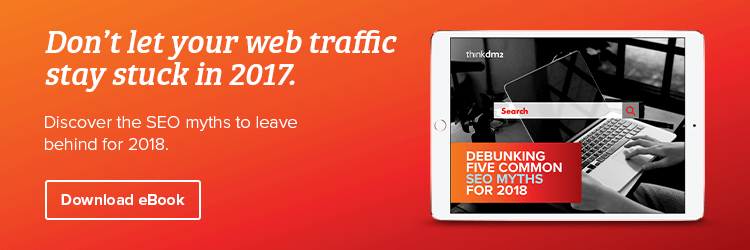
image credit: BlurryMe/shutterstock.com
By the end of this May, HubSpot will no longer be supporting its keyword tool. This is a result of updates to search engines, such as Google, which are following longer keyword phrases instead. Digital Marketers still have HubSpot’s Content Strategy Tool, and HubSpot is prepared to move beyond their outdated keyword tool. Here’s what you need to know about HubSpot’s upcoming changes.
Keyword ranking has evolved, and that’s a good thing
Digital marketers know the struggle of trying to optimize single keywords for search engines, in order to outrank competitors. In the past, a website SEO strategy often meant abandoning common keywords that were next to impossible to rank for. Luckily, those days are over.
HubSpot’s keyword tool was last updated over five years ago, making it severely outdated for digital marketers to use. With the old keyword tool, HubSpot would still be sharing outdated keyword data, which doesn’t comply with Google’s terms of use.
Here are some of the faults that make HubSpot’s keyword tool a thing of the past.
- Can only measure keywords from “.com” websites
- Can’t differentiate between categorized keywords
- Only uses exact-keyword matching
Topic clusters are replacing keywords on HubSpot
When you link your content to a pillar page, it lets search engines understand the relationship between each pages’ content. So what is a topic cluster anyway? Topic clusters provide digital marketers with a simpler way to categorize their keywords, while keeping track of lead generation and traffic for their website.
Topic clusters start with a pillar page, which serves as the hub for the content of your chosen topic. Then, related content is organized around the pillar, with links in between. A topic cluster can be structured as follows:
- Pillar content at the center of the chart, which acts as a landing page
- Cluster content, such as blog posts, around the center
- Hyperlinks to connect clusters to the pillar
With keyword clusters, digital marketers will have more SEO opportunities
Search engines can now recognize complex questions and understand the context for searches, allowing for increased optimization. With Google Organic clicks, you’ll see where your keyword clusters are appearing in its search engine.
The more links you provide, the better your pages’ placement in search engine results will be, and the more views you’ll have. By providing multiple phrases that link to a central topic—such as “b2b web design”—you’re giving search engines a better chance to display your content.
HubSpot’s upcoming update is looking to provide digital marketers with a much simpler approach to keyword ranking, giving them peace of mind. While you prepare for the future of topic clusters in inbound marketing, let thinkdm2 be your guide to SEO success. Download our free ebook to learn about SEO myths that could be keeping your business stuck in 2017.



